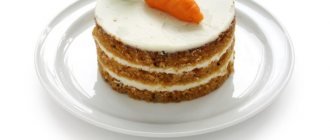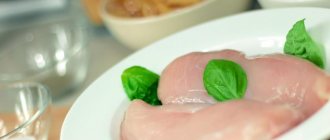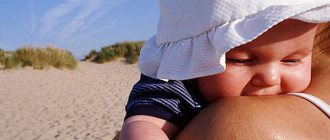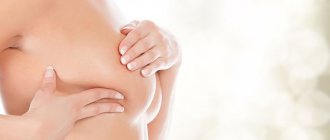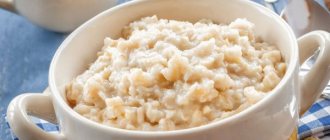23.09.2019
Why is breastfeeding beneficial?
Why proper nutrition is important when breastfeeding
What determines the quality of breast milk?
What not to eat during lactation
Products recommended for consumption
Breastfeeding rules, webinar with a breastfeeding specialist
Any mother wants her baby to grow up healthy. This is why breastfeeding is so important from the moment your baby is born. Breast milk contains all the beneficial substances, vitamins and microelements necessary for a newborn. During breastfeeding, it is very important that the mother’s nutrition is correct, so the diet during lactation has its own characteristics. There are also prohibited products.
Why is breastfeeding beneficial?
To begin with, it is worth noting all the benefits that breastfeeding gives to a newborn. The point is in the composition and other features of mother’s milk:
- It always has the optimal temperature.
- It contains all the necessary nutrients, vitamins and microelements.
- It is able to adapt to the needs of the child, changing its composition and nutritional value over time, as E. Komarovsky writes about this in “The Beginning of Your Child’s Life.”
As a result, the child receives a sterile and safe product that is suitable specifically for him. Of course, we should talk about safety only when the mother adheres to the appropriate diet. Everything a woman eats goes into the baby's food.
Composition and calorie content
The benefit of baked milk lies in its unique composition. When raw materials are exposed to high temperatures, their structure changes, excess moisture evaporates, and the content of certain substances increases. Almost all vitamins, micro- and macroelements that are necessary for the normal functioning of the body are found in small quantities in the drink. So, such milk contains vitamins A, the entire group B, biotin, potassium, niacin, phosphorus, sodium, chlorine, etc.
In addition, the baked product contains monounsaturated fatty acids and sugars, organic acids.
Milk is quite high in calories. This indicator is 65–85 kcal per 100 g. To reduce these values, you can use skim milk during the preparation process, but this will affect the quality of the drink - the taste will not be as rich, and the healing properties will decrease.
Why proper nutrition is important when breastfeeding
Everything that the mother eats enters the baby’s body through breast milk. This brings great benefits to the health, full growth and development of the baby, but it can also cause harm to him, cause digestive problems and an allergic reaction, because the gastrointestinal tract of the newborn is still developing. Therefore, every nursing mother needs to follow a special diet. It is very important to know which foods are ok while breastfeeding, and which ones should be forgotten during the lactation period so as not to harm the baby. Proper nutrition is the key to ensuring that a child receives only healthy things from his mother, which will help him grow and develop fully to the delight of his parents. Dr. Komarovsky recommends excluding from the mother’s diet what was not in her great-grandmother’s diet. The advice is given for pregnant women, however, it is also suitable for nursing women, since all the “oranges and chocolates” will eventually end up in the milk.
Nutrition of a nursing mother and allergies
What to do with allergies? After all, every year the percentage of people with this disease is constantly growing, and you want to protect your baby.
Everything here is very interesting, because research shows that the later a person becomes acquainted with potential allergens, the higher the risk of developing negative reactions to them. That is, a strict diet for a nursing mother not only does not reduce, but even increases the risk of allergies in the baby.
However, food does not always provoke a reaction. More often, the disease has other causes: dry indoor air, dust, lack of walks, plant pollen, animal hair and skin secretions, shower gels and washing powders with aggressive surfactants and fragrances, fungal diseases, stress, and a number of other reasons. The importance of these factors has been scientifically proven!
Only 5-6% of children in the first year of life suffer from food allergies. Therefore, a strict, restrictive diet is not relevant for every breastfeeding woman.
There is controversy about the use of cow's milk protein (CMP) during the first time after childbirth.
“Of course, in the first months of the baby’s life, it is better for the mother not to overuse dairy products. Cow protein is tricky, trace amounts are found in breast milk even 7 to 10 days after the last meal, and a sensitive baby will react to it. Taking enzymes specifically for the mother can help; this reduces the number of undigested protein molecules in the mother’s bloodstream and, as a result, in the milk.” **
Man is the only creature on the planet that consumes the milk of other animals. The immune system of an adult is formed and stable; it may not react so strongly to foreign proteins. The child’s body, as a rule, reacts more sharply, which will manifest itself in the form of abdominal pain, excessively loose stools, sometimes with greens and even blood, skin reactions and anxiety. All these signs are indirect, but if they are present, it is still worth excluding BKM from the mother’s diet first, since most infants with food allergies react specifically to it.
By the way, BKM is contained in almost all mixtures available on the market (albeit in processed form).
If there is an allergy in the first line of kinship (you, your husband, the child’s grandparents), then you can eat one-ingredient meals and monitor the baby’s condition.
First of all, products from the “Big Eight Allergens” require caution:
- animal milk (we most often use cow's milk),
- peanut,
- nuts,
- eggs,
- seafood,
- fish,
- soy products,
- wheat and gluten-containing grains.
There is no need to exclude them from the diet in advance, since it is not a reaction to a specific product that is passed on to the descendants, but a general predisposition to allergy-like manifestations. However, if skin rashes and other symptoms suddenly appear, it is worth taking a break for the entire group for 2 weeks, and then introducing products one at a time.
Another important factor that cannot be kept silent about is the presence of histamine liberators in the mother’s diet.
During an allergic reaction, our body produces histamine. He is responsible for all the specific manifestations of this disease that we observe. There are a number of foods that are not allergens themselves, but can significantly enhance the effect of histamine.
These are chocolate, coffee, cocoa, citrus fruits, exotic fruits and vegetables, smoked meats, pickles, marinades, spices, food additives, flavor enhancers, dyes, chemical vitamins, honey and sugar.
What determines the quality of breast milk?
It is influenced not only by foods allowed during breastfeeding, but also by the state of the woman’s nervous system and her lifestyle. For obvious reasons, a young mother cannot help but be nervous, but she is within her power to build her own daily routine. It is recommended to devote more time to rest: the more time a woman allows herself to sleep and refuse to perform heavy household duties, the better she feels. And her good health is the key to the health of the baby, who will receive all the necessary substances from the breast milk of a calm and well-rested mother. So you can safely involve your husband in your household responsibilities (yes, he works, but motherhood is also hard work, which, by the way, is not paid), relatives, friends, or hired nannies and cleaners. A woman cannot feed normally if she does not have the opportunity to simply get enough sleep and do other things (we are not talking about cleaning and cooking, but about hobbies and cultural leisure).
How to increase lactation
This paragraph is dedicated to the other halves of nursing women - their husbands. In order for the mother to have enough milk, she must rest and, of course, not be nervous. All kinds of experiences have a very negative impact on the quantity and quality of milk, and due to severe stress or chronic fatigue, it may disappear completely. A woman during this period needs the support of her closest person. This applies to help with child care, housework, and moral support. Therefore, dear dads, be patient, show affection and attention to your wife. Without your help, no medications or foods can increase milk production or help maintain breastfeeding.
What not to eat during lactation
Let's look separately at foods during breastfeeding that need to be limited or excluded. These include:
- alcohol,
- coffee,
- strong tea,
- citrus,
- semi-finished products
- onion and garlic,
- carbonated drinks,
- chocolate and confectionery,
- Exotic fruits.
Why are they dangerous? Everyone knows about the dangers of alcohol: it causes irreparable damage to health and destroys the organs of even an adult, and especially a small child. Despite the fact that alcohol passes into milk in small quantities, it is still better to abstain from drinking all types of alcoholic beverages during lactation. Coffee and strongly brewed tea contain caffeine, which, on the contrary, penetrates well into breast milk and has a stimulating effect on the baby's nervous system. Convenience foods and carbonated drinks are harmful due to their high content of dyes, preservatives, salt and sugar. These products can cause bloating and colic in the baby, and dyes and preservatives can have a negative effect on the developing nervous system.
Application in cosmetology
Baked milk product is beneficial for the body not only when used internally, but also when used externally. Often it is a component of various masks in the field of cosmetology.
- Milk has been found to have beneficial effects on the face. Thus, this product helps eliminate inflammation, relieve irritation, moisturize the skin and increase elasticity. Wiping your face with a cotton pad soaked in baked milk can replace the use of nourishing cream.
- You can prepare a moisturizing face mask. In this case, you need to mix half a glass of the drink with a tablespoon of dried calendula flowers and bring the mixture to a boil over low heat, stirring occasionally. Apply the cooled mass to your face for 10–15 minutes, then rinse with warm water. After such a mask, it is recommended to use a moisturizer.
- A refreshing mask based on ghee is also popular. To do this, mix honey, milk, starch and salt in equal volumes. Apply the mask to the face using a cotton pad. You need to keep this mixture on your face for 30 minutes, then wash with warm water. This composition is suitable for oily skin types.
The positive effects of baked milk on hair are also known. Masks based on this product promote deep hydration, prevent hair loss and split ends, eliminate dandruff, help get rid of oiliness, and also stimulate the growth of curls and make them soft and shiny. For example, for a moisturizing mask, you should add the yolk of one chicken egg and a small amount of oil to such milk (burdock, coconut, or shea butter are suitable). Apply the resulting mixture for half an hour and then rinse with water.
- To prevent hair loss, you need to cut 100 g of rye bread, pour a glass of milk into it and add 30 ml of castor oil. Leave the mask for 40 minutes and then spread over the entire length. The head should be wrapped in a towel. Keep this mixture for 35 minutes, then rinse your hair well with shampoo.
- To prepare a strengthening mask, you will need 100 ml of baked milk, 70 g of castor oil and three tablespoons of oatmeal. Apply the resulting mixture to the hair roots and rinse off after a couple of hours.
Products recommended for consumption
Allowed foods during breastfeeding are vegetables, cereals, lean meat, low-fat soups, cheese, boiled and baked fish. What is their use?
- Vegetables. In the first weeks, it is recommended to eat raw vegetables with caution; it is better if they are boiled or stewed. Even when heat-treated, they are a source of vitamins and have a beneficial effect on the intestines.
- Porridges are very filling and healthy, because a nursing mother needs a lot of energy! They contain slow carbohydrates, essential protein, vitamins and a whole range of minerals and trace elements.
- Lean meat is boiled or baked beef, veal, rabbit. Birds are allowed only if they are domestic. Meat as a source of protein helps the body cope with stress and provides energy. A mother who is breastfeeding must consume 100 g of meat per day.
- Low-fat soups. In the first months of a baby’s life, it is recommended to prepare vegetable soups using beef or lean pork broth. They should be present in the diet of a nursing mother due to the presence of proteins, iron, amino acids and microelements.
- Cheese. This product contains calcium, which is so necessary for both mother and growing child.
- Boiled and baked fish. Its benefit is that it is rich in protein and omega-3, -6 polyunsaturated fatty acids. Fish also contains phosphorus and iodine, B vitamins necessary for a nursing mother.
Nutrition for a nursing mother in the first weeks after birth
Very often, women are advised to go on a strict diet, but this is an unfounded recommendation.
Pregnancy and breastfeeding are a continuous process of symbiosis between mother and child. The baby gets acquainted with the standard set of products of his family while still in the womb. You do not need to radically change your diet after giving birth and completely eliminate all “dangerous” foods. The main thing is that the food you eat is of high quality, rich in microelements and vitamins.
The diet of a nursing mother is no different from the diet of an ordinary woman. However, the baby may react to the peculiarities of the mother's digestion. Therefore, in the first weeks after childbirth, you should adhere to a healthy diet and monitor the normal functioning of the intestines.
“Healthy eating is primarily the interest of the mother herself! If you often eat fast food, then this will have a very slight effect on breast milk, but the mother’s health may suffer. But if fast food happens once or twice a month, then there is no reason to worry at all.” *
Try to eliminate foods high in sugar from your diet. Sweets are allowed in moderation. It's best to save carbonated drinks for later. By the way, you need to drink as much as you want, without restrictions. But it is better to drink tea and coffee between meals so as not to reduce the absorption of iron. Be careful with caffeine, it can make babies hyperexcitable.
When cooking, opt for steaming and baking instead of frying. This will help reduce fat and salt content. It is also very important to have slow carbohydrates and foods with plant fiber in your diet (subject to a positive reaction from your digestive system).
It is important!
The list of products during breastfeeding can be gradually increased. It is worth introducing fruits and other new dishes one product at a time, while observing the child’s reaction to updating the diet for several days.
If your baby is not allergic to cow's milk protein, you can consume dairy products. The same rule applies to other products: they can be introduced a little at a time, especially if the baby has already grown up. If you really want to eat a tangerine or orange, then you can afford a couple of slices. It’s still not worth limiting yourself in everything just because it may negatively affect the quality of milk. But we need to approach lifting restrictions wisely. You should gradually learn which foods will not cause a negative reaction in your baby while breastfeeding.
Proper nutrition for a nursing mother is very important to ensure that the baby receives as many essential substances as possible from mother's milk. And then breastfeeding will be beneficial for the baby, and will help the nursing mother enjoy her new role and realize the happiness of motherhood.
How dangerous is the product?
The only serious danger when consuming baked milk is an allergic reaction. If a person is allergic to regular milk or baked milk, an allergic reaction will also follow. Due to the high concentration of the allergen for the same volume of product, the allergy can manifest itself much more strongly.
If a mother or baby experiences nausea, skin rashes, or stomach upset after drinking milk, avoid the product for a while and consult a doctor. Make sure that this is a reaction to baked milk, and next time introduce it gradually, starting with a spoon a day.
also be dangerous for obese nursing women , since, unlike fresh milk, it contains a lot of fat and is extremely high in calories.
Harm and contraindications
Baked milk is characterized by a number of useful qualities, but there are still certain contraindications that are important to consider when consuming such a product.
- Since the drink has a high degree of fat content, atherosclerosis may develop. To prevent the development of such a disease, it is not recommended for people over forty years old to get carried away with such a delicacy.
- Those who are obese should be especially careful when using baked milk products.
- The risk group includes those who are allergic to lactose, as well as individual intolerance. If unpleasant consequences are detected, as well as gastrointestinal disorders, you should immediately seek medical help.
When including a drink in the diet of children, you should first consult with a specialist. This will allow you to find out whether the child may experience side effects.
Drinks to improve lactation
If there is a lack of fluid, the amount of breast milk may decrease. An average person should drink at least two liters of fluid per day. For a nursing mother, this volume should be doubled.
What drinks are good for increasing breast milk:
- Pure water . Pure still water is the main source of fluid for the formation of breast milk. During the feeding period, many mothers feel an increase in thirst. Drinking boiled or unboiled water is a personal choice, but there should be at least two liters of clean liquid per day.
- Tea with milk . Warm drinking perfectly stimulates the secretion of milk production. It is advisable to drink it shortly before feeding the baby. It is recommended to use condensed milk as a sweetener.
- Ginger tea . You need to be careful with this drink, as ginger can cause an allergic reaction. You can drink ginger tea with half a teaspoon of honey and a slice of lemon in the fourth month of breastfeeding.
- Carrot juice with milk or cream . Carrots are the most beneficial vegetable for lactation. Only fresh plant juice will be beneficial. To prevent rashes in the child, the juice is diluted by half with full-fat milk or cream.
- Herbal teas . During the first months of breastfeeding, infusions and hot drinks based on lemon balm, hawthorn, oregano and dill will help increase the amount of breast milk.
